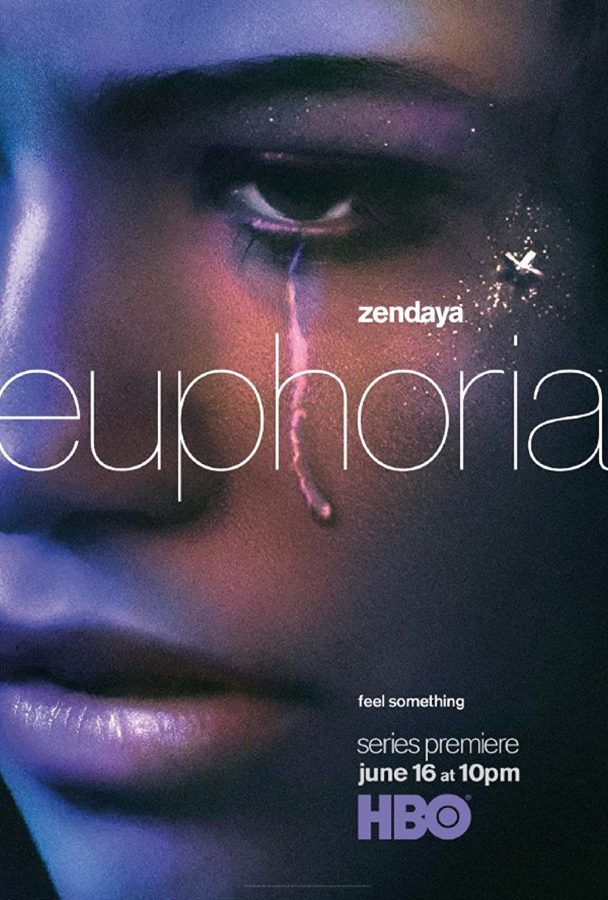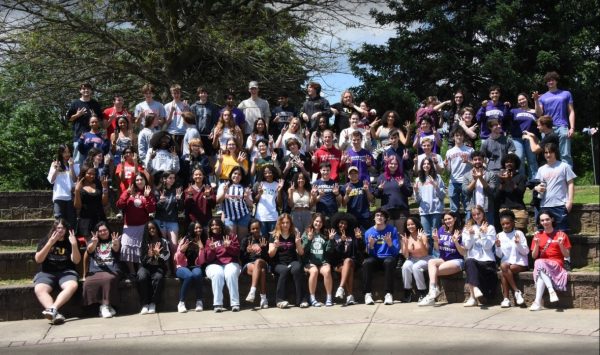Euphoria and adolescents: tale of discouragement or glamorization of illegal behaviors?
The impact of pop culture and social media on teens is massive. As a teenager myself, I witness first hand the ways in which these mediums affect my generation, for better and for worse. Speaking on the impact of pop culture on teens, writer Audrey Tramel commented on how “it affects the way teenagers think of themselves, how they associate with others, and how they express characteristics of their maturation.” It is common for teens to want to replicate what is deemed as “cool,” whether it be dressing like characters from popular TV shows or engaging in certain activities that they see their favorite celebrities doing, but what happens when this desire to replicate their behavior promotes drug use, alcoholism, and the sexualization of adolescents?
If you are a teenager, particularly one who is active on social media, it is more than likely that you have at least heard of the popular HBO Max show Euphoria. From its season one debut in June 2019, it was met with equal parts controversy and praise, with this controversy only increasing along with the rising popularity and record breaking viewership the show has obtained in its second season. In brief, the show “follows a group of teenagers dealing with experiences of trauma, abuse, love, friendships, identity, and more,” and in many ways can be considered a character study. Some of the most notable characters from the show include Rue (played by Zendaya), a struggling teenage drug addict, and Jules (played by Hunter Schafer), a confident and strong teenager with a traumatic past. The show’s storylines cover heavy topics in every episode such as abusive relationships, drug addiction, and teenage sexualization, raising the question of whether the content is appropriate for the age group that it appears to be targeting. While the show’s TV-MA rating implies the target audience is 17 and older, its popularity amongst younger teens is irrefutable, with many social media platforms, especially Tik Tok, serving as major catalysts for the increased viewership.
What many cite as the issue with Euphoria is not necessarily the unsettling scenes, but rather the way in which very mature issues are treated as “common” amongst teens and even at times glamorized. D.A.R.E (a drug abuse resistance group) recently published a statement advising people, specifically teenagers, to refrain from watching the show for this very reason, stating, “the show chooses to misguidedly glorify and erroneously depict high school student drug use, addiction, anonymous sex, violence and other destructive behaviors as common and widespread in today’s world.” In the show, teenage sex is treated as common through extremely graphic nudity, and depicted by adult actors portraying teens. The same goes for drug and alcohol use, with scenes of characters driving under the influence and engaging in fatal drug deals; it begs the question of whether the show is a cautionary tale or an incentive for bad and dangerous behavior amongst teens.
Arguably the most common criticism that Euphoria has received throughout the duration of its two seasons, surrounds the way the show creates an “aestheticization of trauma.” Freshman at Yale University, Samuel Getachew, touches on this very issue and how it affects the teenage population by stating, “They dance through morally and legally dubious scenarios to a theatrical soundtrack and emerge mostly unscathed and always flawlessly groomed, episode after episode.” Nearly every time a very “adult” situation occurs for these juvenile characters, including everything from unprotected sex and solicitation of minors, it is accompanied by a plethora of glittery makeup, dramatic music, and intricate lighting. Euphoria has not only been able to capture the attention of teenage audiences in a sense of viewership, but also created a cultural trend for teens with its glittery makeup looks and stylish costume design. However, when a show has that big of an emphasis on “adultifying teens,” is this cultural impact more harmful than influential? In a virtual world where teenagers are constantly being sexualized and encouraged to engage in illegal behaviors, is this star studded show really what we need right now in a time of numerous stressors affecting this very population around the world?
In spite of the many aspects of the show that could be potentially harmful for teenagers, support and praise for Euphoria and the way it handles these sensitive issues is abundant as well. The way the titular character Rue’s complex storyline progresses throughout the show as a struggling drug addict, from relapse to recovery and back again, has been particularly praised for its accurate portrayal of drug addiction and also for, unlike various other characters in the show, how Rue experiences consequences for her actions. Her struggles with drug addiction result in her hurting and traumatizing her sister and mother, as well as those close to her. So even in spite of the potentially harmful aestheticized scenes involving her and her love interest, Jules, partaking in drug use, we are able to see Rue’s story as a cautionary tale that in many ways discourages these behaviors by displaying their negative outcomes.
In response to D.A.R.E’s public criticism of the show, Zendaya touched on the purpose of the show not being to glamorize these inappropriate behaviors, but rather offer a platform for people struggling with these issues in feeling less alone in their struggle. This however brings up a real question of impact vs. intent, as while the show’s intent may be to raise awareness, its actual impact is perhaps a promotion and glamorization of these struggles.
In terms of audience, Euphoria’s is extremely sizable. Variety found that the recent season two finale drew a whooping 6.6 million viewers from both HBO and HBO Max, and in season two, “episodes are now averaging 16.3 million viewers, which is the best performance for any season of an HBO series over the past 18 years, other than “Game of Thrones.” It has been recently announced that the show will be renewed for a third season, making it quite plausible that its immense popularity will only continue to skyrocket.
Euphoria’s impact on my generation has been tremendous and has undoubtedly come to embody the Gen Z aesthetic, with the distinct fashion and makeup choices that have been carefully chosen to illustrate the way our generation is full of risk takers, tired of living in a “binary world”. Beyond the stylistic components, Euphoria has sparked important conversations that have otherwise been ignored surrounding substance abuse and sexualization. Many teens have sighted the show as the first time they have felt seen in their struggles through pop culture, so is it truly the show’s fault if raising awareness unintentionally leads to promotion? This conundrum clearly has no definitive answer, but for now, we must hold the show accountable without discounting the positive ways it may affect generations in years to come.

Hi Everyone! My name is Ella Gincherman, this is my 10th year at SSFS and 3rd year on Wildezine. I am so excited to not only be serving as a staff writer...






